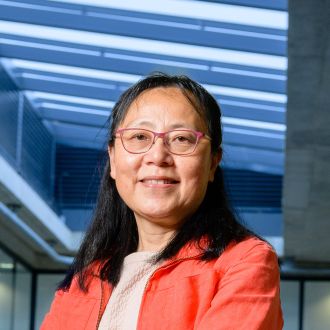Professor Xin Lu
About
Professor Xin Lu is a cancer biologist distinguished by her contributions to understanding cellular pathways that control cell fate in development and disease, particularly cancer. She has a long-standing interest in how to selectively kill cancer cells, and her major research advances have provided insights into how p53, the most mutated or inactivated tumour suppressor in human cancers, can make life or death decisions for a cell.
Xin’s early work showed how p53 responds to activation of cancer-causing genes and DNA damage. She then discovered the ASPP family of proteins as molecular switches that control p53-mediated cell killing. In addition to cancer, the ASPPs have now been implicated in the pathogenesis of other disorders, including sudden cardiac death and brain abnormalities. Xin has also made contributions to our understanding of fundamental cell biology through her ongoing research on the role of cell plasticity in cancer.
Xin also leads Oxford’s research into early cancer detection through her directorship of the Oxford Centre for Early Cancer Detection.
Xin is a Fellow of the Royal Society, the Academy of Medical Sciences, and a Member of the European Molecular Biology Organisation.
Professor Xin Lu is one of our Cancer at Oxford | University of Oxford experts.
Expertise
- Cancer biology
- Cell biology
- Cellular pathways that control cell fate
- p53 tumour suppressor
- Early cancer detection
Selected publications
- Arsenic Trioxide Rescues Structural p53 Mutations through a Cryptic Allosteric Site (2021)
- CagA–ASPP2 complex mediates loss of cell polarity and favors H. pylori colonization of human gastric organoids (2020)
- iASPP mediates p53 selectivity through a modular mechanism fine-tuning DNA recognition (2019)
- Single cell RNA-seq reveals profound transcriptional similarity between Barrett’s oesophagus and oesophageal submucosal glands (2018)
